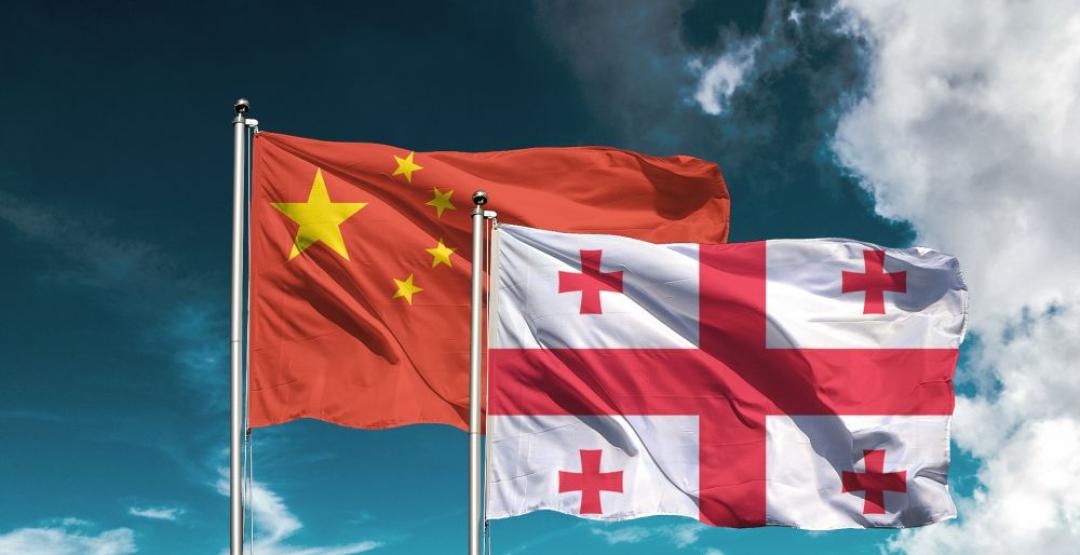
China, the Black Sea, and the Idea of the Middle Corridor

As the competition between the West and China expands across Eurasia, one particular geographical area – Black Sea region – has largely been free of the exacerbating rivalry. Yet, recent developments indicate that this might be changing and that China could be emerging as a strong player in the region.
On May 29, the Georgian government revealed that a Chinese consortium of companies will build a deep seaport at Anaklia on Georgia’s Black Sea coast near the separation line with Russia-occupied Abkhazia. This decision ends a long period of uncertainty over the project, which has been central to Georgia's ambitions since regaining independence in 1991 to transform itself into a transit country that would connect the European Union (EU) to Central Asia and further with the western province of Xinjiang, China.
Chinese companies were considered probable winners, marking their second attempt after an initial effort in 2015 when an American consortium won, but the project was scrapped in 2020 due to internal political issues in Georgia and geopolitical concerns. The latter most probably relates to Russia's opposition to a heavy U.S. presence in the region, which likely influenced Georgia's decision, and it appeared the U.S. was more focused on preventing Chinese involvement than on the port's construction. Plans to restart the project were unveiled in 2022 when the Georgian government proposed to remain in control of a 51 percent stake in the project. Potentially, Anaklia can become the second-deepest seaport in the eastern Black Sea region after Russia’s Novorossiysk and turn into a transcontinental trade hub.
The announcement follows the more recent developments in Georgia-China relations. Since 2017, the two countries have enjoyed a free trade regime, and in July 2023, Tbilisi and Beijing signed a strategic partnership. Though it is unclear what exactly this agreement means, it seems it has already widened the scope of cooperation between the two countries.
For instance, China lifted visa requirements for Georgian nationals in June 2023, and bilateral trade has been steadily growing, though it remains below expected levels. Chinese companies have also been building critical infrastructure in Georgia, such as tunnels, bridges, and roads, particularly in geographically challenging regions that connect eastern and western Georgia.
China’s increased engagement with Georgia is intertwined with the current dynamics of Georgia's troubled relations with its Western partners and broader geopolitical developments in the South Caucasus and the Black Sea region. The war in Ukraine has heightened the geopolitical importance of the region, and China's growing profile in Eurasia has pushed the country to seek a greater footprint. Additionally, Georgia's relations with its Western partners have become more unpredictable, especially since the war in Ukraine began and the reintroduction of a “transparency on foreign influence” bill, which took place earlier this year.
The expansion of Georgian-Chinese relations also fits into Tbilisi’s pursuit of a multi-vector foreign policy, whereby the country is trying to balance close ties simultaneously with major Eurasian and Western actors. This strategy has created conducive circumstances for furthering relations with Beijing, as partnerships often offer more flexibility than alliances. The war in Ukraine and ensuing sanctions on Russia disrupted east-west connectivity between China and Europe, previously routed mostly through Russia.
This dynamic has brought renewed attention to the Middle Corridor, which runs from the Black Sea through the Caspian and Central Asia to the Xinjiang province. Although the Middle Corridor is not a new concept, China began taking it seriously after Russia's invasion of Ukraine, promoting projects like the China-Kyrgyzstan-Uzbekistan railway.
Moscow may not be content with China’s growing presence along Russia’s southern borders. Unlike in Central Asia, where China and Russia have agreed to downplay their differences, China's involvement in the South Caucasus is a new development for Moscow. This region has traditionally been a battleground for Russia-West competition, and Anaklia’s proximity to Russia-occupied Abkhazia increases the potential for frictions between Beijing and Moscow as China's presence could deter potential Russian military moves in Georgia.
While Russia prefers north-south trade corridors, it must adapt to the unfolding east-west connectivity facilitated by China's initiatives. Despite any discomfort, Russia views China as a far more manageable partner than the West. Indeed, Beijing does not pose an existential threat to Russia’s geopolitical interests that allows the two actors to minimize potential disagreements in the South Caucasus. Their shared opposition to the West and the US in particular still serves as a far bigger incentive to cooperate.
Then there is also the EU, which considers China a systemic rival. Yet, the Anaklia port could serve as a meeting point between China and the EU, benefiting both as the project is poised to enhance the Middle Corridor.
Therefore, as a shift is taking place in Georgia's foreign policy from its traditional focus on the West towards other regions, China has capitalized on this opportunity by seeking to increase its posture in the Black Sea region. This fits into the broader vision of Beijing to position itself as an important actor in this distant geographic area where China’s influence has traditionally been minimal.
Emil Avdaliani is a professor of international relations at European University in Tbilisi, Georgia, and a scholar of silk roads.
See Also


From Neorealism to Neoliberalism: Armenia’s Strategic Pivot in Foreign Policy After the Nagorno-Karabakh Conflict

Georgia and Russia: New Turn in Bilateral Relations

3+3 Initiative as a New Order in the South Caucasus

Economic Cooperation Between Armenia and Georgia: Potential and Challenges Ahead

